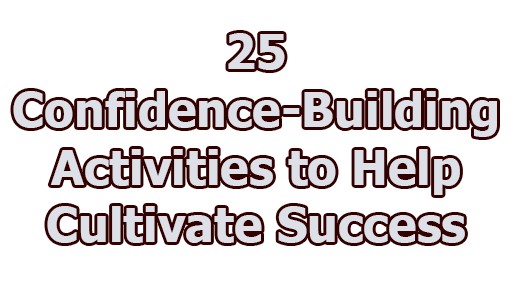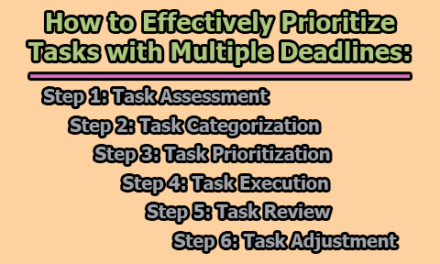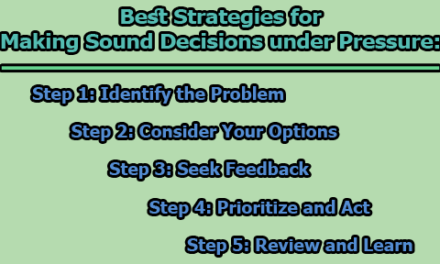25 Confidence-Building Activities to Help Cultivate Success:
Confidence is the cornerstone of success, and many accomplished individuals attribute their achievements to a strong sense of self-assurance. Building and nurturing confidence is a transformative process that can help individuals overcome fears, take risks, and unlock their full potential. In this article, we will explore the concept of confidence-building activities, their significance in professional life, and 25 confidence-building activities to help cultivate success.
Definition of Confidence-Building Activity:
A confidence-building activity is any action or practice that aims to improve and reinforce an individual’s self-confidence. Confidence, in this context, refers to the feeling of certainty in one’s abilities and intelligence. When you are confident, you have a clear understanding of your strengths and are unafraid of making mistakes or encountering setbacks. This self-belief empowers you to embrace challenges and persistently work towards your goals. Incorporating confidence-building activities into your daily routine can help you develop and maintain a positive self-image, leading to increased self-assurance and overall success in various aspects of life.
The Importance of Confidence in the Workplace:
Confidence is not just a personal trait; it plays a vital role in the professional realm as well. Here are some key reasons why possessing confidence is crucial in the workplace:
a) Boosting productivity: Confident individuals are more inclined to face challenges head-on and persistently work towards solutions. This leads to higher productivity and the ability to deliver high-quality work.
b) Improving career prospects: Confidence often garners the respect and admiration of colleagues and employers, making you more likely to be seen as a dependable and hardworking professional. This, in turn, can open doors to potential promotions and pay raises.
c) Enhancing happiness: Having confidence in your abilities fosters a sense of satisfaction and fulfillment in your professional endeavors, contributing to improved overall well-being and happiness.
25 Confidence-Building Activities:
Here are 25 activities you can try to build your confidence:
1. Reflect on accomplishments: Take some time to reflect on your past accomplishments, both big and small. Remembering your achievements can boost your self-confidence and remind you of your capabilities. For example, think about a time when you successfully completed a challenging project at work, received recognition for your efforts, or achieved a personal goal. By reflecting on these accomplishments, you can reinforce your belief in your abilities and build the confidence to take on new challenges.
2. Eat healthily and exercise: Physical well-being plays a crucial role in building confidence. Adopting a healthy diet and incorporating regular exercise into your routine can have a positive impact on your mood and overall sense of well-being. For instance, try including more fruits, vegetables, and whole grains in your meals and engaging in activities like jogging, yoga, or swimming. By taking care of your body, you’ll feel more energetic, which can translate into increased self-assurance in various aspects of life.
3. Practice good hygiene: Maintaining good hygiene can significantly influence how you perceive yourself and how others perceive you. Take pride in your appearance and practice good grooming habits. For instance, maintain regular personal grooming, keep your hair neat and clean, and ensure your clothes are well-kept and appropriate for the occasion. Feeling clean and refreshed can give you a confidence boost and positively impact your interactions with others.
4. Dress well: The way you dress can have a profound effect on your self-image and self-confidence. Dressing well and wearing clothes that make you feel comfortable and confident can improve your overall demeanor. For example, when attending a professional event, opt for attire that reflects the occasion and makes you feel confident. By putting effort into your appearance, you’ll exude a sense of self-assurance that others will notice and respect.
5. Put on a fragrance: Certain scents have the power to evoke positive emotions and memories. Wearing a fragrance that you associate with positive experiences can enhance your mood and boost your confidence. For example, if the smell of lavender or citrus makes you feel relaxed and positive, consider using a scented lotion or perfume with those fragrances. Having a confidence-boosting aroma around you can positively influence your mindset and interactions with others throughout the day.
6. Clean your space: Your physical environment can significantly impact your mental state and confidence levels. Take the time to declutter and organize your living or working space. A tidy and well-organized environment can create a sense of control and clarity, making you feel more in charge of your life and boosting your confidence. For example, set aside some time each week to clean up your workspace or living area, ensuring that everything is in its proper place.
7. Conduct a SWOT analysis: A SWOT analysis stands for strengths, weaknesses, opportunities, and threats. Take a closer look at your abilities, skills, and personal attributes as well as areas where you may need improvement. Identify potential opportunities that align with your strengths and determine potential obstacles or challenges you may face. By conducting a SWOT analysis, you can create a clear plan for building on your strengths, addressing weaknesses, and pursuing opportunities, which can enhance your overall confidence.
8. Visualize confidence: Visualization is a powerful technique used by many successful individuals. Take a moment each day to close your eyes and visualize yourself as a confident and accomplished person. Picture how you walk, talk, and interact with others in various situations. By imagining yourself as a more confident version of yourself, you can program your mind to adopt those behaviors and attitudes, which can boost your confidence and help you become the person you envision.
9. Keep a gratitude journal: Gratitude can have a profound impact on your outlook on life and self-confidence. Start a gratitude journal and make a habit of writing down three things you are thankful for each day. This practice can shift your focus from what you lack to what you already have, fostering a sense of contentment and self-assurance. For example, you might be grateful for supportive friends, a loving family, or a job that challenges and fulfills you.
10. Enhance your skills: Invest time and effort into developing skills that align with your interests and career aspirations. Acquiring new knowledge and expertise can significantly boost your confidence. Sign up for courses, attend workshops, or seek opportunities to learn from experts in your field. For instance, if you aspire to become a more effective public speaker, enroll in a public speaking course to improve your communication skills. As you become more proficient in your areas of interest, your confidence will naturally grow.
11. Commit an act of kindness: Engaging in acts of kindness not only benefits others but also has a positive impact on your self-perception. Acts of kindness can range from small gestures, like holding the door for someone, to more significant contributions, like volunteering for a charitable cause. For example, you could offer a helping hand to a colleague with their workload or surprise a friend with a thoughtful gift. These acts of kindness can reinforce your sense of empathy and competence, boosting your confidence.
12. Speak with a “confidence buddy”: Having a supportive and understanding friend, family member, or mentor can be incredibly beneficial when facing moments of self-doubt. Reach out to your “confidence buddy” to share your concerns and seek encouragement. They can offer valuable insights, provide constructive feedback, and remind you of your strengths and accomplishments. Sometimes, having someone else believe in your capabilities can be the confidence boost you need to overcome challenges.
13. Listen to high-energy music: Music has a profound effect on our emotions and can be a great tool for boosting confidence. Create a playlist of high-energy and motivational songs that inspire you and make you feel empowered. When you’re about to tackle a challenging task or need a confidence boost, listen to these songs to lift your spirits and energize your mindset.
14. Set small, achievable goals: Breaking down larger goals into smaller, attainable milestones can help you maintain focus and build confidence as you achieve each step. Instead of overwhelming yourself with a big, daunting goal, set smaller objectives that lead toward your ultimate target. Celebrate each accomplishment along the way, as each small success contributes to your overall confidence.
15. Seek new challenges: Embrace opportunities that push you out of your comfort zone and challenge you to grow. Taking on new challenges, whether in your personal or professional life, allows you to develop new skills and gain valuable experiences. For example, if you’ve always wanted to learn a new language, enroll in a language class or use language learning apps to expand your horizons. Conquering these challenges can increase your self-assurance and make you more willing to take on even greater tasks.
16. Meditate: Meditation is a powerful practice for improving self-awareness and reducing stress. By dedicating time each day to quiet reflection, you can identify and address negative thought patterns and self-doubt. Meditation helps you cultivate a calm and focused mind, allowing you to gain a better understanding of yourself and your capabilities, leading to increased confidence.
17. Say “yet”: Replace limiting beliefs and negative self-talk with a growth mindset. Instead of saying, “I can’t do this,” say, “I can’t do this yet.” Emphasizing the word “yet” implies that you are on a journey of growth and improvement. This simple shift in language can empower you to see challenges as opportunities to learn and grow, fostering greater self-confidence.
18. Buy yourself a gift: Treat yourself to something special or rewarding when you achieve a personal or professional milestone. Whether it’s a book you’ve been wanting to read, a spa day, or a piece of jewelry, indulging in a thoughtful gift can serve as a pat on the back and a reminder of your accomplishments, boosting your self-esteem.
19. Laugh: Laughter is a natural stress reliever and mood booster. Surround yourself with humor, whether through watching a comedy show, spending time with funny friends, or engaging in activities that make you laugh. A good laugh releases endorphins, making you feel more positive and self-assured.
20. Cultivate a hobby: Engaging in a hobby you enjoy can bring a sense of accomplishment and mastery. Whether it’s painting, playing a musical instrument, gardening, or cooking, investing time in a hobby can provide a sense of fulfillment and boost your confidence in your abilities outside of work. By consistently incorporating these confidence-building activities into your life, you can cultivate a strong and resilient self-assurance that will propel you toward success in all aspects of life. Remember that building confidence is a gradual process, so be patient with yourself and celebrate each step of your journey.
21. Employ self-talk: Be mindful of your internal dialogue and practice positive self-talk. Replace self-criticism with affirmations and words of encouragement. For example, instead of saying, “I always mess up,” tell yourself, “I am capable of learning from my mistakes and improving.” By consciously choosing positive and supportive language, you can boost your self-esteem and confidence.
22. Reimagine challenges: Shift your perspective on challenges by viewing them as opportunities for growth and learning. Embrace the idea that setbacks are a natural part of any journey toward success. When faced with a challenge, remind yourself that it is an opportunity to build resilience and develop new skills, increasing your confidence in your ability to overcome obstacles.
23. Seek guidance from someone you admire: Reach out to a mentor, role model, or someone you look up to for guidance and feedback. Seeking advice from someone you admire can provide valuable insights into your strengths and areas for improvement. Their encouragement and support can give you the confidence to pursue your goals with determination.
24. Appreciate the present moment: Focus on the present and practice mindfulness to fully appreciate your current achievements and progress. Instead of dwelling on past mistakes or worrying about the future, be present at the moment and acknowledge your efforts and growth. Practicing gratitude for where you are in your journey can foster a positive outlook and boost your confidence in your capabilities. By integrating these additional confidence-building activities into your daily life, you can continue to nurture and strengthen your self-assurance. Remember that building confidence is a continuous process that requires patience, self-compassion, and consistent effort. As you develop greater confidence, you will find yourself better equipped to face challenges, take on new opportunities, and achieve success in all aspects of your life.
25. Embrace failure as a learning opportunity: Shift your perception of failure from a negative outcome to a valuable learning experience. Instead of being discouraged by setbacks, see them as opportunities for growth and improvement. When you encounter failure, take the time to reflect on what went wrong and what you can learn from the experience. Embrace the lessons gained from failure as stepping stones toward future success. By viewing failure as a natural part of the journey, you can develop resilience and a stronger belief in your ability to overcome challenges, ultimately boosting your confidence.
In conclusion, confidence is a dynamic trait that can be nurtured and strengthened through conscious effort and practice. In the workplace, confidence has far-reaching benefits, impacting productivity, career advancement, and overall happiness. By incorporating the 24 confidence-building activities into your life, you can develop a robust self-assurance that will propel you toward success in both your personal and professional endeavors. Remember that building confidence is a continuous journey, and with dedication and perseverance, you can achieve remarkable outcomes and become the best version of yourself.
Frequently Asked Questions [FAQs]:
What are confidence-building activities?
Confidence-building activities are actions or practices that aim to improve and reinforce an individual’s self-confidence. These activities can help individuals develop a positive self-image, believe in their abilities, and face challenges with resilience.
Why is confidence important in the workplace?
Confidence in the workplace can lead to increased productivity, improved career prospects, and higher job satisfaction. Confident individuals are more likely to take on challenges and persist in finding solutions, making them valuable assets to employers.
How can reflecting on accomplishments build confidence?
Reflecting on past accomplishments reminds individuals of their capabilities and progress. Celebrating achievements, both big and small, reinforces a sense of achievement and self-assurance, motivating individuals to pursue further success.
What role does meditation play in building confidence?
Meditation helps individuals develop self-awareness and reduce stress. By calming the mind and gaining better control over thoughts and emotions, meditation can help address self-doubt and foster a greater sense of self-confidence.
How can setting small, achievable goals contribute to confidence-building?
Setting small, attainable goals allows individuals to track progress and experience success more frequently. Achieving these milestones reinforces self-belief and encourages individuals to take on more significant challenges with confidence.
Why is it essential to seek new challenges for building confidence?
Embracing new challenges exposes individuals to opportunities for growth and learning. Successfully navigating these challenges enhances self-assurance and empowers individuals to tackle more complex tasks.
How does self-talk impact confidence?
Positive self-talk, focusing on affirmations and encouragement, can improve self-esteem and boost confidence. By cultivating a growth mindset and avoiding self-criticism, individuals can develop a more resilient and confident outlook.
Why is gratitude journaling beneficial for building confidence?
Keeping a gratitude journal helps individuals focus on the positive aspects of their lives, fostering a sense of contentment and self-assurance. Acknowledging and appreciating what one has achieved and received can enhance overall confidence.
How can seeking guidance from someone admired contribute to confidence-building?
Seeking advice and feedback from someone respected can provide valuable insights into strengths and areas for improvement. Positive feedback and encouragement from a role model can boost an individual’s confidence in their abilities.
How can embracing failure as a learning opportunity enhance confidence?
Viewing failure as a chance to learn and grow rather than a negative outcome helps individuals develop resilience and a more positive attitude toward challenges. This perspective strengthens self-belief and confidence in overcoming obstacles.

Library Lecturer at Nurul Amin Degree College










